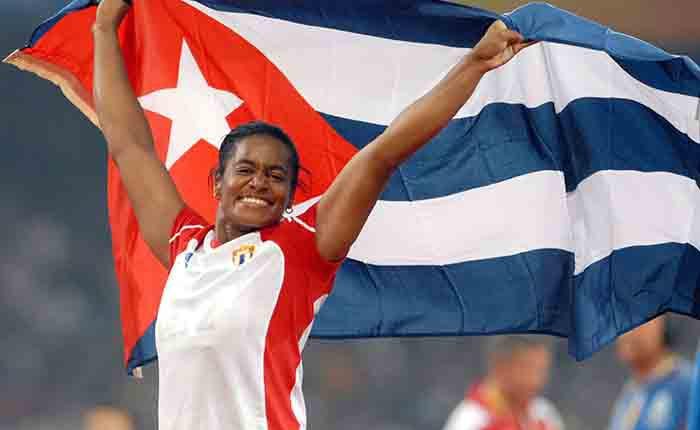
The meat and potatoes of a fifth place finish
The one time Cubans were allowed to celebrate any medal other than gold, and in this case it was a silver, was that long ago November of 1993 in the Central American and Caribbean Games held in Ponce, Puerto Rico, where our very own Ana Fidelia Quirot crossed the finish line in second place, in the arduous 800 meter race.
Just nine months earlier, in an accident at her home, the athlete had suffered second and third degree burns that affected up to 40 percent of her body. After more than 20 operations and reconstructive surgeries, Quirot was back on the track at full strength. That was what people celebrated that afternoon: not the silver medal, nor the second place finish, but her courage and resistance, and the will of a woman who’d won the fight for her life.
From there on in, for the people of this Island to win a silver or a bronze medal in whatever sport is more or less the same thing as losing. It’s that simple. It’s extreme.
This bad habit comes from the Eighties and even a little further back, since the 1976 Montreal Olympics, when our Antillean athletes finished in eighth place among all nations, and our eyes were filled with desire. Four years later, in Moscow, we climbed the ladder to fourth place, and then took only one step backwards in Barcelona placing fifth, in spite of the fact that in 1992 the country hit rock bottom during the worst of the Special Period.
Now, in light of those aforementioned results, the fifth place in the 2019 Pan American Games held in Lima, Peru, sounds almost like a consolation prize in spite of the blood, sweat and tears needed to achieve this. But that’s not the case; no sir. You can’t compare the preparation of our athletes who were once financed with unlimited access to Soviet rubles to our current situation where the training is still hard and under the sun, and all done with tremendous desire, but little of everything else. We don’t live in that same situation. Nor are we the same people.
Today, probably for the first time, and like in so many other things, we are witnessing results in our sports that we deserve; those that we can afford, and which don’t come cheaply. And still they are pretty amazing results when one considers that ahead of us only stood the United States with its 325 million inhabitants, followed by Brazil with 208 million, Mexico with 123 million, and even Canada with only 37 million people — or three times the population of our green alligator-shaped Island.
It is not necessary to be an expert in economics, or computer science, metaphysics or any other science of the beyond, to understand why those countries, which by the way are geographically enormous, win more medals than us and all others in our hemisphere: they have many more people and, as if that were not enough, and possibly more importantly, they have plenty more dough too. Logic, statistics and Kantian reason are too weighty. They win because, barring a disaster or a miracle, they have everything to gain.
And it is not that in recent years the level of our sports has declined, but that in recent times, as much as this may bother us, the level of the others has improved. Countries that at one time could not hold a candle to us in any sport, today leave us behind with our mouths wide open in shock when they run past us at full speed.
It is true that it would be great and productive if our athletes could enjoy more international exposure, and that all the equipment be modernized, and that more science and technology be applied in their training. But the most important and urgent thing we must do is find a very large mirror that allows us to see our full-length selves, and shows us who we are and what we can do, and what we have to do.
Surely we must update our methods and strategies, and yes, refocus our sports, but always with our feet on the ground, both of them. Each one touching the ground firmly because, truth be told, what Cubans need right now are not gold or silver medals, but plenty of meat and potatoes.


